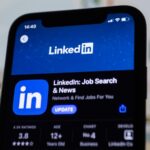Finding the right job has always been a challenge, but today things look a little different. Artificial intelligence isn’t just reshaping industries—it’s also changing how we search for work, write resumes, and prepare for interviews.
If you’ve ever stared at a blank page trying to write the “perfect” cover letter or felt overwhelmed by dozens of job boards, you’re not alone.
The good news is that AI can give you an edge if you know how to use it.
I want to walk you through how I would approach landing a dream job using AI—from fine-tuning resumes to practicing interviews—so you can make the process less stressful and a lot more effective.
Step 1: Use AI to Clarify Your Career Goals
Before jumping into applications, it helps to know exactly what you’re aiming for. AI tools can analyze your skills, experience, and even job descriptions to suggest roles you might not have thought about.
For example, you could paste your current resume into an AI tool and ask it to highlight strengths, transferable skills, or industries where you’d be competitive. Sometimes we’re too close to our own experience to see the bigger picture, and AI can point out patterns you might miss.
Tip: Don’t treat AI like a crystal ball. Think of it as a career coach who gives you prompts and ideas, but you make the final call.
Step 2: Supercharge Your Resume with AI
Your resume often gets just a few seconds of attention from recruiters or automated screening systems. AI can help make sure yours stands out.
Here’s how I’d use it:
Tailor for each job posting. Paste the job description into an AI tool and ask it to highlight keywords or phrases. Then compare those to your resume. If the posting emphasizes “project management” or “data analysis,” make sure those exact terms appear naturally in your bullet points.
Polish language and structure. AI can rewrite clunky sentences, improve clarity, and suggest stronger action verbs. “Responsible for managing a team” might become “Led a team of 8 to deliver projects ahead of schedule.”
Check formatting. Some tools can even test whether your resume is ATS (Applicant Tracking System) friendly, meaning it won’t get lost in the software filters many companies use.
Caution: AI isn’t perfect. Always review the final draft to make sure it still sounds like you.
Step 3: Write Better Cover Letters Without Starting from Scratch
Most people dread writing cover letters, but here’s where AI really shines. Instead of starting with a blank page, you can:
Feed the AI your resume and the job description.
Ask it to draft a personalized letter connecting your experience to the role.
Edit the draft so it feels authentic and in your voice.
The key is to avoid copy-pasting. Recruiters can tell when something feels generic. Use AI as a starting point and then add your own stories, motivations, and personality.
Step 4: Prep for Interviews Like a Pro
AI can help you practice interviews without waiting for a friend to role-play. Some platforms simulate real interview questions—both technical and behavioral—and even analyze your answers.
Here’s what I’ve found useful:
Generate practice questions. Copy the job description into an AI tool and ask it to create likely interview questions. This gives you a tailored list to rehearse.
Get feedback. Some AI interview coaches provide suggestions on pacing, filler words, or confidence.
Refine your stories. If you’re using the STAR method (Situation, Task, Action, Result), AI can help you polish those examples so they’re clear and concise.
Remember, though, AI can’t capture the human chemistry of an interview. Use it to prepare, not to script your answers word-for-word.
Step 5: Research Companies and Roles Efficiently
AI can save you hours of scrolling through company websites and news articles. For example:
Summarize company mission statements or recent press releases.
Compare different job postings to spot patterns in skills they want.
Identify industry trends that you can reference in interviews.
This way, when someone asks, “Why do you want to work here?” you’ll have a thoughtful answer ready instead of scrambling.
Step 6: Network Smarter with AI
Networking is still one of the most effective ways to land a job, and AI can make it easier:
Draft outreach messages. Struggling to write a LinkedIn message? AI can create a polite, professional draft that you can tweak.
Analyze profiles. Tools can suggest mutual interests or skills you share with a connection, which makes conversations more natural.
Organize follow-ups. Some AI-based tools help you keep track of when to check in with people you’ve spoken to.
It’s worth noting that networking isn’t about blasting AI-generated messages to dozens of people. It’s about building genuine connections. AI just helps with the initial awkwardness.
FAQs
Can recruiters tell if I used AI on my resume?
Not directly. What they can spot is when something feels too generic or doesn’t match your real voice. Always personalize AI outputs.
Are AI-generated resumes accepted by ATS systems?
Yes, as long as you keep formatting simple and use standard headings. Avoid overly designed templates that ATS can’t read.
Is it cheating to use AI for job applications?
Think of AI as a tool, not a shortcut. You’re still providing your experience, achievements, and personal insights. AI just helps present them more effectively.
How much should I rely on AI?
Use it to save time and spark ideas, but don’t outsource your entire application. Employers want to hear your story, not a robot’s.
The Bottom Line
AI is changing how we find and apply for jobs, but it’s not here to replace human effort. It’s here to give you a head start—whether that’s sharpening your resume, easing the stress of cover letters, or making interview prep more effective.
The real magic happens when you combine AI’s efficiency with your own voice, passion, and determination. That’s what makes you stand out from every other applicant using the same tools.
So here’s the question I’ll leave you with: If AI can take care of the busywork in your job search, what unique strengths and stories will you bring forward to make your dream job truly yours?





GIPHY App Key not set. Please check settings